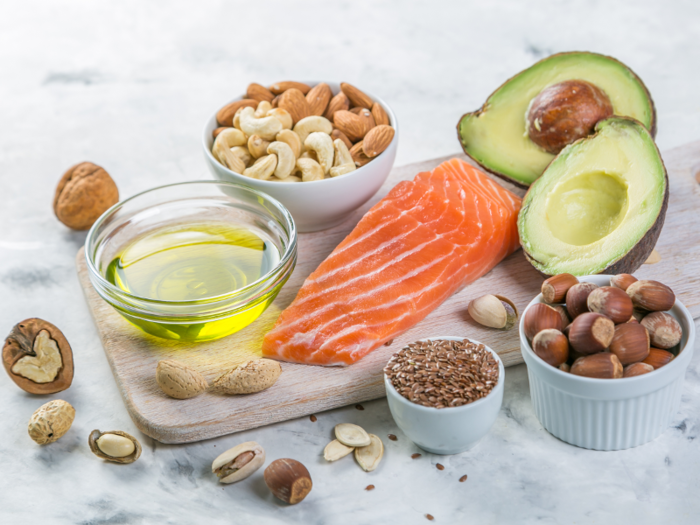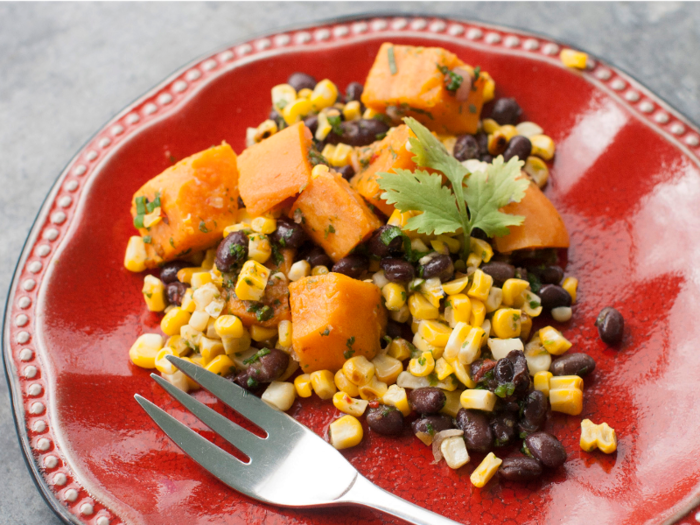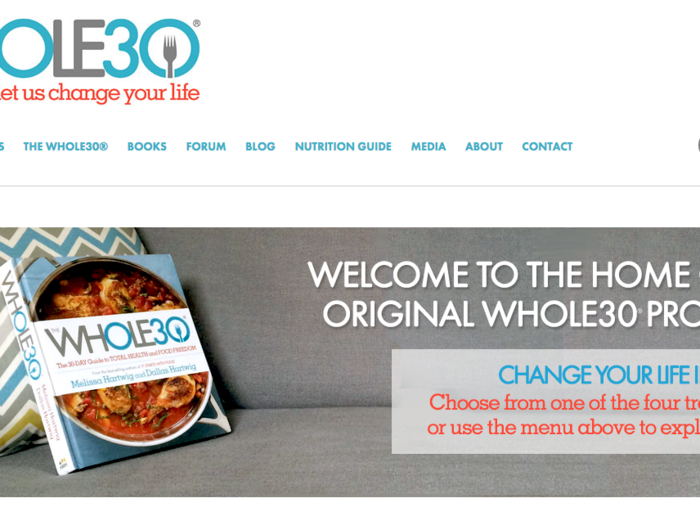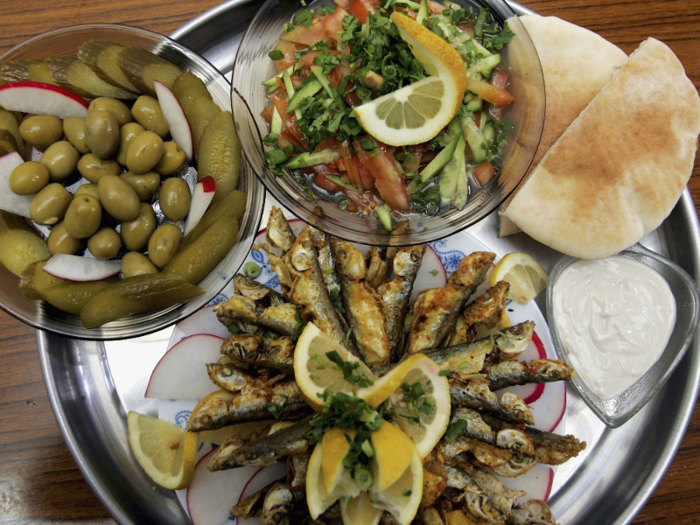- Home
- slideshows
- miscellaneous
- The most popular diets millennials want to try in 2019
The most popular diets millennials want to try in 2019
The most popular choice was a low-carb diet — 31.1% of millennials expressed interest in it. While this is a popular way to lose weight, a growing body of research suggests low-carb diets could lead to premature death if followed for a long period of time.

Another 23.5% of respondents said they would like to go on a reduced-calorie diet. Recent studies have found that eating fewer calories could help people live longer.

Studies are increasingly suggesting that people who reduce the amount of food they eat by as much as one-third or half can have more energy and experience less illness.
A small study of 34 Americans, who reduced what they ate by 15% for a period of two years, found that dieters' bodies aged more slowly compared to those of people who did not change their eating habits.
While the science surrounding this diet is still evolving, scientists are examining whether lowering calorie intake sometimes — a few days per month — could help people age more slowly.
The ketogenic diet came in third place, with 19.3% of respondents wanting to try it. The diet is a high-fat, low-carb approach that could be great for losing weight.

Instead of eating lots of carbs, people on the keto diet fuel up on fats and small amounts of proteins. These dieters reduce their sugar intake, but they also limit the healthier carbs they consume.
Recent studies have cast doubts on the benefits of long-term keto diets. In August, for example, a study of more than 447,000 people found that eliminating entire food groups could lead to premature death.
The keto diet could have negative consequences in the long run because it essentially requires participants to eliminate lots of fruits and vegetables. Eating fewer than 50 grams of carbs a day on the keto diet means having no more than two apples' worth of carbs.
In addition, there is some evidence that a low-carb diet like keto could lead people to become less tolerant of glucose and develop diabetes, though there is little research on this connection.
Nevertheless, some benefits of the keto diet are clear. The method can help people lose weight and control their blood-sugar. It can also benefit children who have epileptic seizures.
The Atkins diet is similar to the ketogenic diet, though it not as strict. The approach restricts participants' carb intake to 20 to 25 grams per day in an initial phase. Later, participants can consume 80 to 100 grams a day.

About 9.2% of respondents said they are interested in trying the Atkins diet next year.
The Atkins diet can be more sustainable in the long run than keto because it allows participants to reintroduce carbs into their diet after some time.
Weight Watchers can help people focus on real nutritional properties like calories, sugar, and fat, several doctors previously told INSIDER. About 16.8% of respondents are interested in trying this method.

Weight Watchers works by translating calories, sugar, proteins, and saturated fat into a points system that encourages dieters to opt for more nutritious foods.
The program focuses more on a flexible diet than restriction, and participants meet weekly with their coaches. Keep in mind that the coaches are not medical professionals.
People on a low-fat diet eat lean protein, fruits, vegetables, and grains while avoiding full-fat dairy and meat products. About 15.1% of respondents said they would like to go on this diet next year.

This diet was a popular recommendation for decades, but scientists have recently become more skeptical of it.
Consuming low-fat foods is not necessarily healthier. While studies have shown that trans fats can increase the risk for cardiovascular disease, low-fat foods tend to include elevated amounts of sugar and calories.
In October 2015, a study of more than 68,000 people found that people on low-fat diets did not lose more weight than people on other diets.
Vegetarians don't eat meat or fish. Of the survey respondents, 15.1% said they are interested in becoming vegetarian.

On average, vegetarians weigh less than people who eat meat, according to observational studies.
Research also shows that people who cut meat from their diet can have a lower impact on the environment. To get enough nutrients as a vegetarian, you can eat grains, nuts, and dairy.
Going vegetarian could have significant health benefits. Studies have linked vegetarianism with lower chances of cancers and heart disease.
Vegans don't eat anything that comes from an animal — meat, fish, or dairy products. About 5% of respondents said they would like to be vegan.

Some studies say veganism shares many of the benefits of vegetarianism, such as lowering the risk of cancer and heart disease.
Vegans also tend to not have high blood pressure or type 2 diabetes. As with other diets cutting entire food groups out, vegans have to make sure they consume enough nutrients.
Meat is a solid source of protein, but eating too much of it can be harmful. Roughly 15.1% of respondents said they are interested in eating less meat next year.

Numerous studies have linked processed meat to cancer and heart disease.
In 2015, for example, experts at the World Health Organization said eating processed meat can lead to bowel cancer.
According to the National Cancer Institute, cooking meats like beef and poultry over a hot open flame — or pan frying them at high temperatures — causes the fat and juices they release to mix with harmful chemicals that enter the meat. While researchers have not concluded that this causes cancer, lab tests show it is possible.
The WHO also says any kind of red meat could be linked to an elevated risk of cancer.
The FAST 5:2 diet is a form of intermittent fasting. Participants eat normally for five days a week and drastically lower their calorie intake for the other two days. 6.7% of respondents expressed interest in this diet.

For some people, fasting can lead to headaches, difficulty concentrating, and dizziness.
Still, restricting calorie intake for just two days per week could be an easier undertaking than moderating calorie intake all the time.
Over the course of six months, a small study found that women lost about as much weight on the 5:2 diet as they did on a seven-day calorie-restricting diet. Animal studies have suggested that this diet could also help prolong life and curb cancer risk.
About 5.9% of respondents are interested in going gluten-free, which has been a trendy diet in recent years. There is little scientific evidence that being gluten-free is beneficial for people who do not have celiac disease.

If you have celiac disease, eliminating gluten from your diet can save your life. For everyone else, doctors say adopting a gluten-free diet is not that healthy.
Peter Green, the director of the Celiac Disease Center at Columbia University, previously told Business Insider that people on a gluten-free diet have elevated levels of heavy metals like arsenic, lead, and mercury. This could be due to the large amounts of rice that gluten-free people eat, as rice seems to absorb these metals at higher rates than other grains do.
Green said anyone on a gluten-free diet should seek the guidance of a dietitian.
The Paleo diet eliminates cultivated grains and livestock, encouraging participants to eat foods that their ancestors could have hunted or gathered. 4.2% of respondents expressed interest in going on this diet.

A small study found that paleo diet participants lost weight and may have lowered their risk of heart disease. These results, however, did not differ much from the outcomes of people on other calorie-restricting diets.
Keep in mind that if you cut out major food groups such as dairy and grains, you could lose out on important nutrients.
"If you want to copy your paleolithic ancestors, you're better off mimicking their activity levels, rather than their alleged diet," the British Dietetic Association says.
Whole 30 is an extremely restrictive diet. For 30 days straight, participants do not consume grains, dairy, sugar, alcohol, legumes, soy, or processed foods. About 5% of survey respondents said they are interested in trying Whole 30 next year.

You don't have to weigh yourself or count calories while you're on this diet.
Whole 30 is a short-term plan similar to the Paleo diet, which has not shown notable beneficial effects in the longterm.
The South Beach diet, a three-phase program that focuses on whole foods, was chosen by only 3.4% of respondents.

Designed by cardiologist Arthur Agatston in 2003, the South Beach diet requires participants to cut out all carbs, fruits, and alcohol in the first phase.
Later, dieters gradually add some of these foods back in, though only whole-grain carbs are allowed throughout.
Going on the South Beach diet could leave you without enough nutrients. Some participants have reported ketoacidosis, which can cause dizziness, tiredness, insomnia, constipation, and nausea.
Only 4.2% of respondents said they are interested in trying the Mediterranean diet. Recent studies suggest this may be the best option for maintaining a healthy body and brain.

The Mediterranean diet emphasizes healthy fats, vegetables, and proteins while lowering the amounts of processed foods.
A study published in May suggested the Mediterranean diet could also help reduce the symptoms of depression. Participants in the study saved about $26 per week by choosing this diet over a traditional one.
The remaining 9.2% of respondents said they would like to try another kind of diet.

Popular Right Now
Popular Keywords
Advertisement